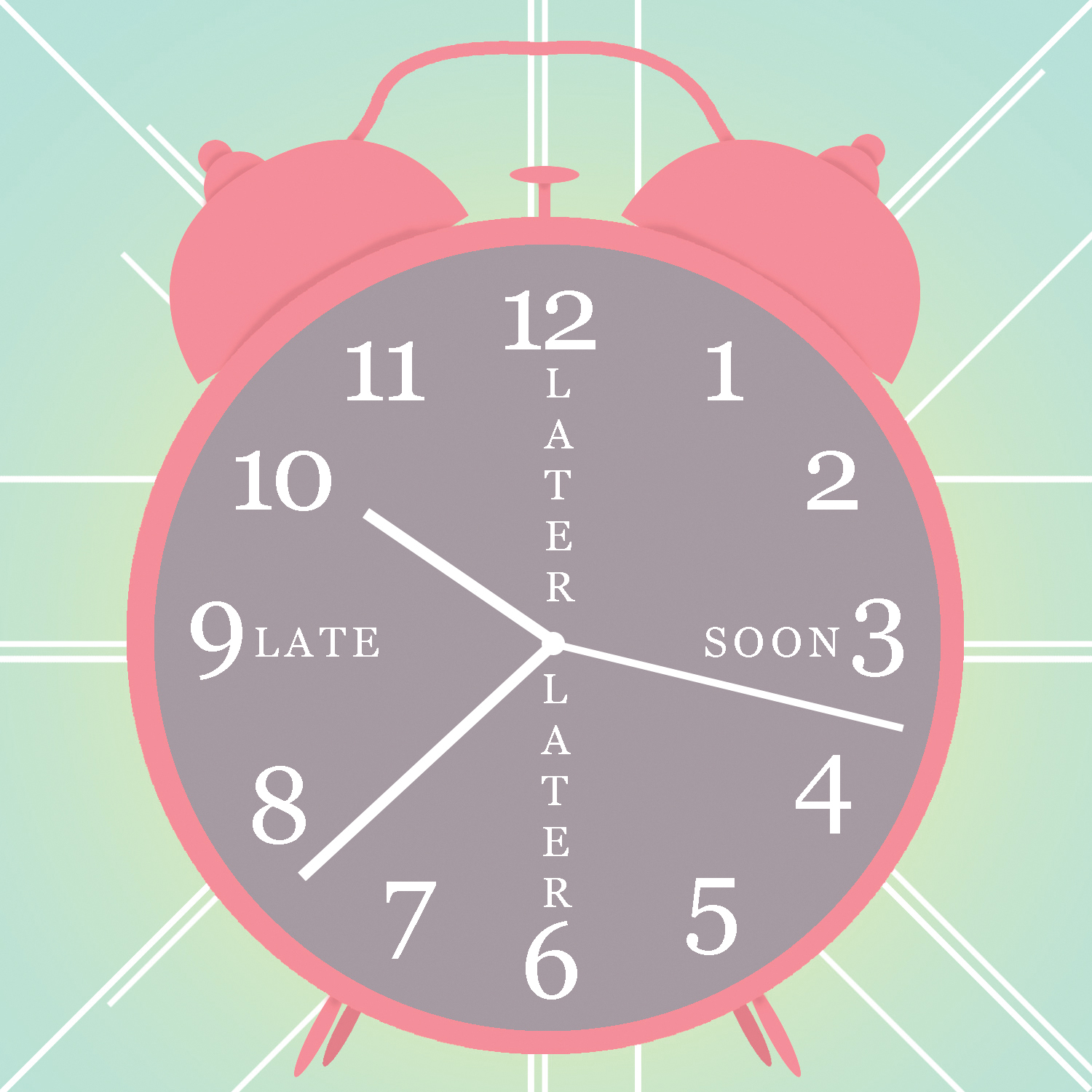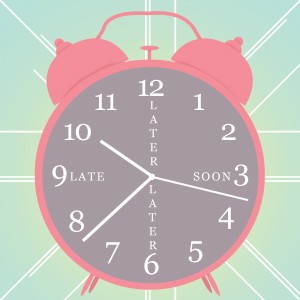Finding the balance

Delaying a task such as studying can help and hinder your performance

Facebook, Twitter, Tumblr — the procrastinator’s best friends. While everyone knows it’s more beneficial to get started on a task earlier rather than later, this doesn’t prevent procrastination from happening. But at what consequence do we procrastinate?
A study conducted by researchers at Warwick Business School in England found a correlation between how close to a deadline students hand in assignments and the mark they receive. The paper, called “Time of submission: an indicator of procrastination and a correlation of performance on undergraduate marking assignments,” found that those who waited until the very last minute to submit saw up to a five per cent drop in their grade.
Second-year bachelor of business administration student at Wilfrid Laurier University, Ryan Shotbolt, said he believes procrastination has a factor in the mark he receives on assignments.
“If the same amount of hours is put in last minute, it’s going to be stressed and rushed,” he said. “But if it’s done a week earlier, then it’s more relaxed and more comfortable getting the work done. It’s more productive.”
Anne Russell, an associate professor in the English department, said she hasn’t noticed a difference over the years as to whether procrastination has worsened among students.
But she said she can also tell when students have rushed an assignment.
“There’s a big difference in the work usually between the work of people who come to talk to me about their papers a week or two before they’re due and the work of people who ask for an extension the day before,” she said.
For Russell, the most important part of writing an assignment is thinking about your topic.
“I think procrastinating about thinking about your topic is the biggest problem,” she continued.
“Some people might be able to write well under pressure as long as they’ve been thinking about their topic for a while and not thinking about it all and just sitting down to write puts you in a really exposed position.”
For those who believe that writing under pressure produces better work, Michael Lisetto-Smith, manager of Laurier’s Study Skills and Supplemental Instruction Centre, said there needs to be a balance of stress.
“The key is to create enough stress, that moderate level of stress, to keep us going. Because if we don’t have any stressor in our life, we’re going to spend the whole time sitting on the couch doing nothing.”
The problem arises when tasks are left to the last minute and stress increases from moderate to high.
Counselling Services at the Wellness Centre often treat students who are dealing with the effects of procrastination.
“Often when we see people it’s because there’s been negative consequences to procrastinating,” explained Sherrie Steinberg, a counsellor at the Wellness Centre. “That increases anxiety and sometimes it can slide into depression where the consequences are such that now they are faced with some tough choices.”
Because every instance is unique, however, Steinberg emphasized the importance of speaking with students to figure out why they are procrastinating.
“Because if someone says, ‘Well I’m just afraid to fail’ then okay we need to talk about that. And if someone says, ‘Well I’d just rather go out and drink with my friends’ well then we need to look at that. I would approach those in different ways.”
Sometimes, the problem goes far beyond procrastinating.
“I certainly talk to students in the beginning of December and they say I haven’t been to class in six weeks and I’m like, is that procrastination or is that something else going on?” she said.
Roger Buehler, a professor of psychology at Laurier, explained the psychological reasons why people procrastinate.One problem is anxiety, as procrastinating allows you to avoid feeling overwhelmed. Another explanation is the fear of failure.
“That in some ways by procrastinating you might be setting yourself up for failure, but at least you have a ready-made excuse for it,” he said. “So that,
‘Well I put it off too long, so that’s why I didn’t do well’ — that’s less threatening then ending up concluding that you just don’t have the ability to do it well.”
Perfectionists, Buehler continued, are also prone to procrastination.
“You have unrealistic expectations about how good it has to be and you don’t feel you’re going to be able to meet those expectations, and that’s paralyzing.”
Oftentimes we also underestimate how much time it will take to complete tasks, leading to procrastination.
“I think an important thing for people to keep in mind is knowing what their triggers are for procrastination,” Buehler said.
Then, he said, we can work towards avoiding those triggers.
Boba Samuels, manager of the Writing Centre, said it’s not uncommon for students to visit the centre at the last minute. This makes it difficult for tutors to give realistic feedback for students to incorporate into their work.
“It really limits you if you don’t give us enough time to help you,” she said. “We do have some horror stories of people coming in an hour before their paper is due and thinking there is something we can do to help. There’s really not much we can do at that point.”
To avoid procrastination, Elyse Lavoie, a second-year kinesiology student, said she tries to allot time for all of her commitments.
“If there’s a really hard essay, then I’ll give myself more time to do that than to do an online quiz,” she continued.
“I just take Adderall,” said Shotbolt. “That puts me in the mood to study.”
But sometimes just finding a way to get started is the most important step.
“Part of what procrastination is about is feeling overwhelmed,” said Buehler.
“If you can break it into manageable units at least you can get started in the first unit and that’s half the battle, just getting started.”


